On May 17-18, 2025, the 2025 Tsinghua PBCSF Global Finance Forum was grandly held in Shenzhen. Theme Forum X, centered on " Sustainable Investing: A New Paradigm in the Outlook and Development of Global Capital Markets" featured five domestic and international experts and scholars sharing their insights, fostering a vibrant exchange of ideas among the participants. This forum received academic support from the Finance MBA Education Center of the PBC School of Finance, Tsinghua University.
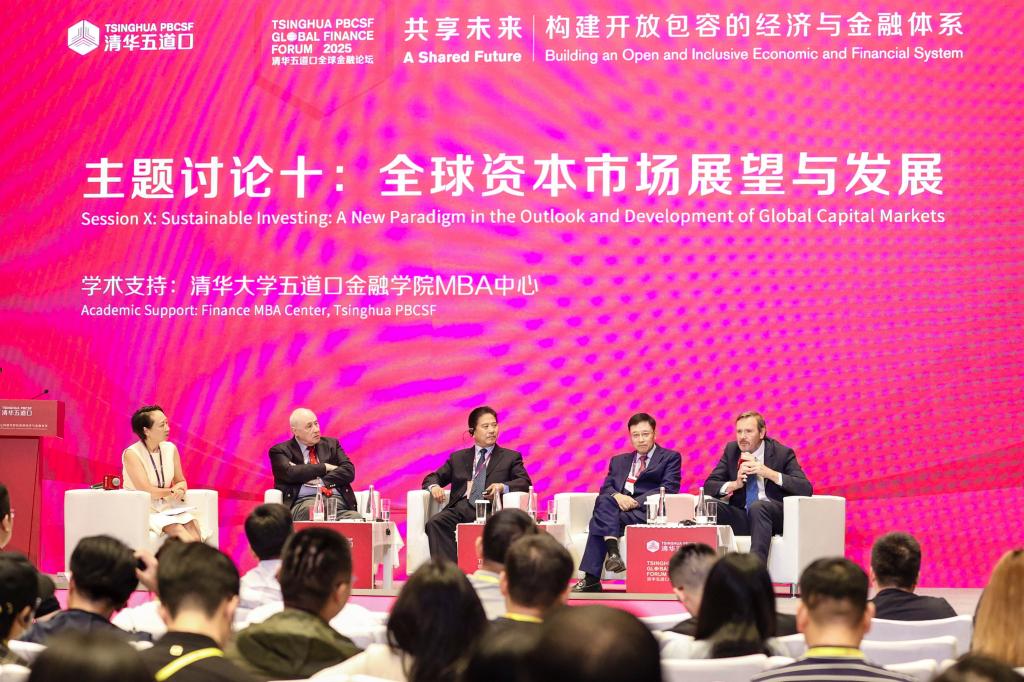
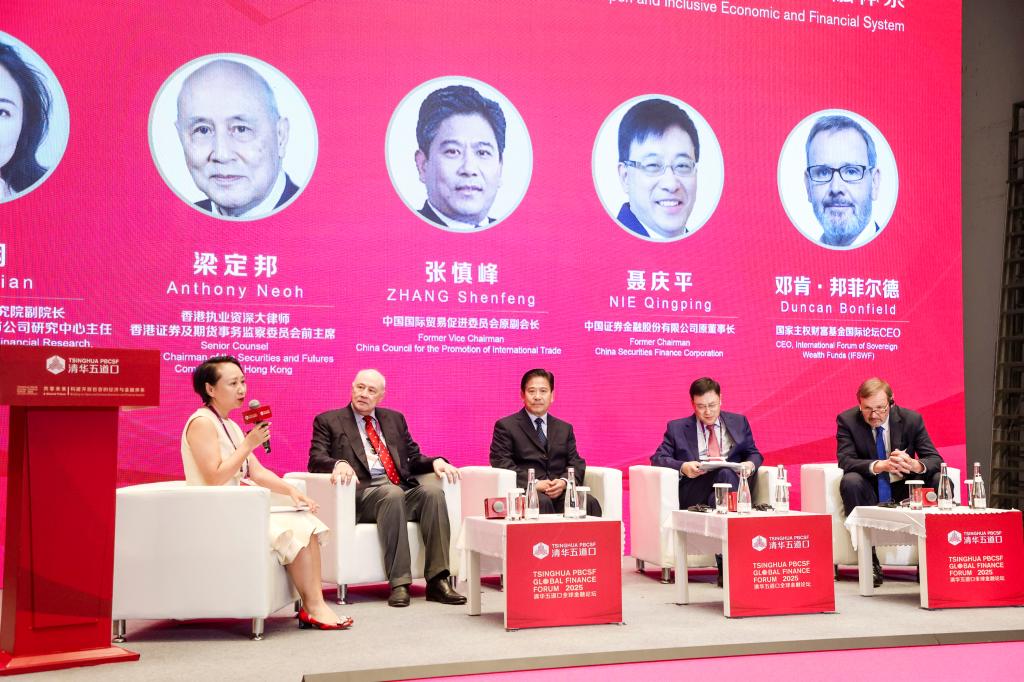
Photo: at Session X
Anthony Neoh, Senior Counsel, Former Chairman of the Securities and Futures Commission of Hong Kong, ZHANG Shenfeng, Former Vice Chairman of China Council for the Promotion of International Trade, NIE Qingping, Former Chairman, China Securities Finance Corporation and Duncan Bonfield, CEO of International Forum of Sovereign Wealth Funds(IFSWF) shared and exchanged ideas on the global capital market. Wang Xian, the vice Chair of the National Institute of Financial research at Tsinghua University, the director of Listed Company Research Center, Tsinghua PBCSF presided over this forum.
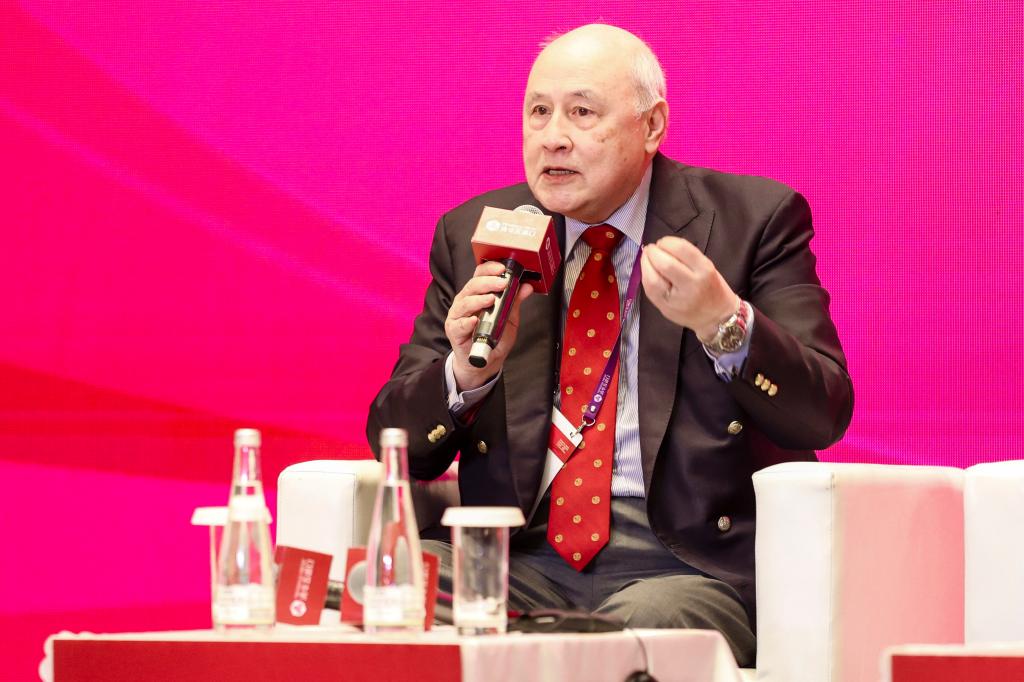
Photo: Anthony Neoh
Anthony Neoh reviewed the process of market internationalization both in Hong Kong SAR and mainland China from an global perspective. He said that the concept of capital market globalization was developed relatively recent, where in most countries, local markets dominated the capital markets, until the 1970s.
When formulating international standards and rules, he found that the financial ecology is scientific, political and economic. It consists the feature of a scientific regulatory method formed through long-term accumulation, and the influences by unique cultural, political factors as well as government policies.
At that time, the world was promoting globalization, and the United States focused on market choice and reduced intervention. The industrial production system is the key to globalization. Although China has become the world's largest producer and industrialized country, the fruits of industrialization have not been fully integrated into the capital market. Hong Kong market in China, is an international market, and the proportion of institutional investors has changed due to the Shanghai-Hong Kong Stock Connect and Shenzhen-Hong Kong Stock Connect. Globalization has significantly promoted the development of both markets, especially in terms of scientific research.
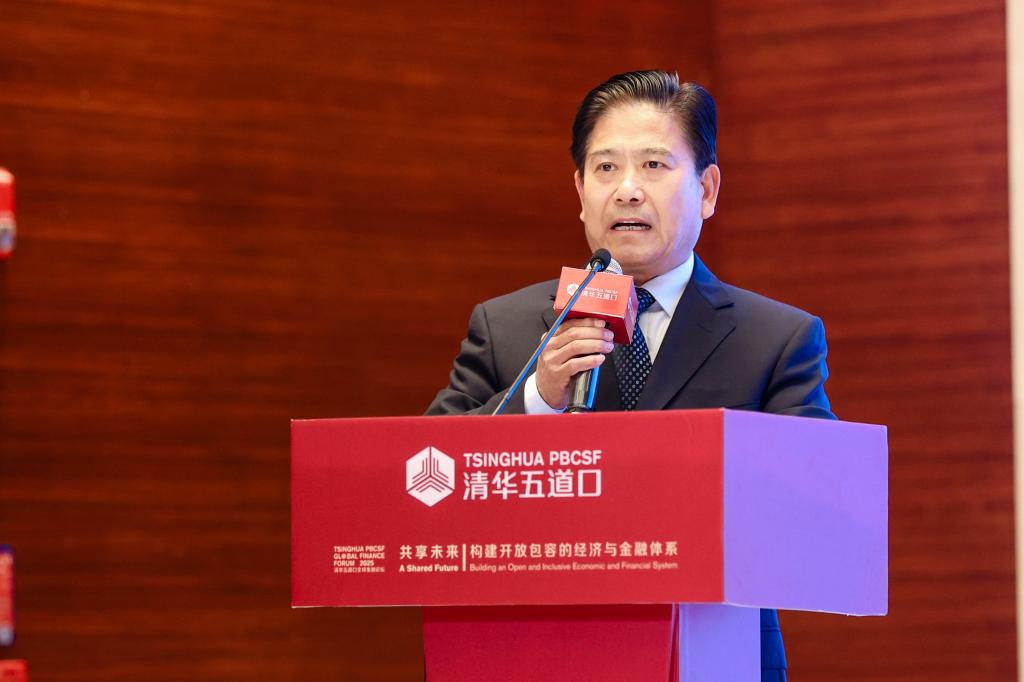
ZHANG Shenfeng
ZHANG Shenheng shared the basic situation of the world's major capital markets. He said that US stocks had maintained strong growth in the long term, and led the global scientific and technological innovation and industrial revolution, except for three short-term shocks such as the Internet bubble, subprime mortgage crisis, and COVID-19.
Since the beginning of 2025, the US stock market fell sharply and consolidated at a high level. US stock market is entering the contraction period of the Kitchin cycle, with a clear trend of high-level index decline and strong spillover effects.
The overall western market is significantly affected by the US stock market. Among them, the German market is relatively strong due to its high-tech advantages; the British stock market is relatively stable; the French stock market is greatly affected by the fluctuations of the US stock market; and the Japanese stock market is still not stable in its recovery momentum. As an emerging market, India has a rapid index growth but also has vulnerabilities, and is currently in a high-level consolidation stage.
The Hang Seng Index in Hong Kong China, has matured, and its correlation with A-shares has increased in the new century. It has shown good growth recently and has optimistic prospects for the future. The A-share market in mainland China has developed rapidly but with significant fluctuations, and has unique market characteristics. Valuations are cyclical, and it is important to pay attention to key indicators such as the median price-to-book ratio of A-shares.
Coupled with the volatile tariff policies of the United States, the A-share market is also facing a complex situation. To address these challenges, the Party Central Committee and the State Council have made scientific arrangements to promote the stable, healthy and high-quality development of the capital market.
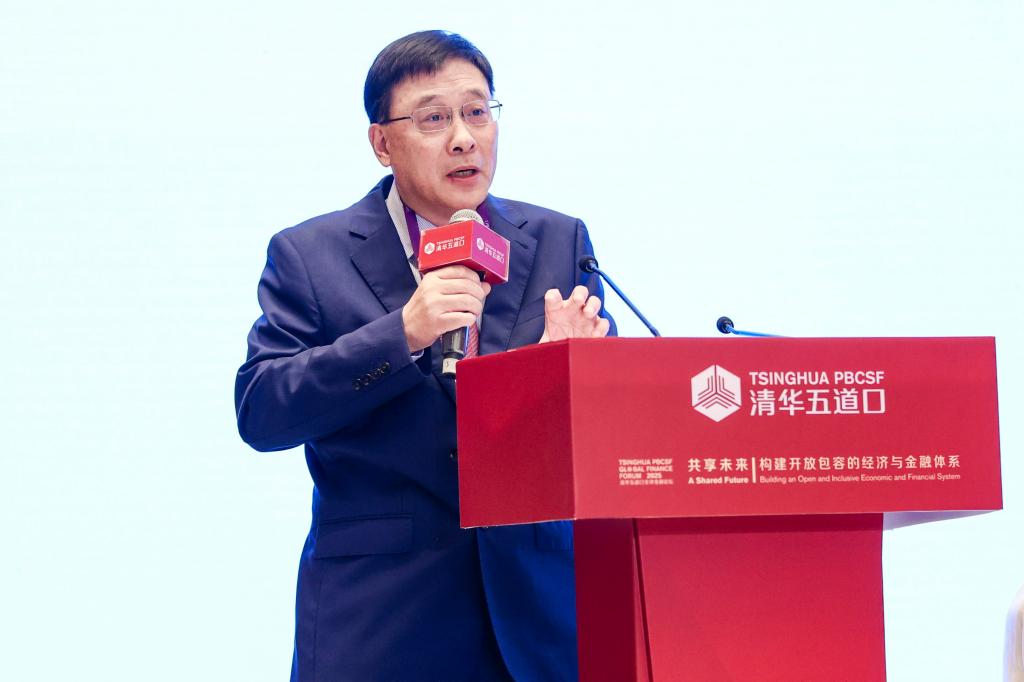
NIE Qingping
Nie Qingping expressed views on the global capital market from four perspectives. Firstly, China has long been prepared for Trump's tariff war and has the ability to maintain the stability of the stock market through a series of countermeasures. Secondly, he pointed out that the so-called international rules are actually rules of developed countries, and developing countries are often exploited. The concept of globalization and international rules should be viewed rationally. Third, the US market is facing problems such as the hollowing out of the manufacturing industry, the large scale of treasury bonds, and asset mismatch in the financial system. US assets are overvalued, and it is necessary to be cautious about holding US assets in the future. Finally, he talked about the mismatch between the valuation and trading structure of China's A-share market, but China has valuation advantages and long-term policy support, and the capital market will move towards value investing. He reviewed the development history of H-share, emphasized that China is the most valuable capital market in the world, which has not been fully discovered. He was optimistic about the long-term layout of China's capital in the future.
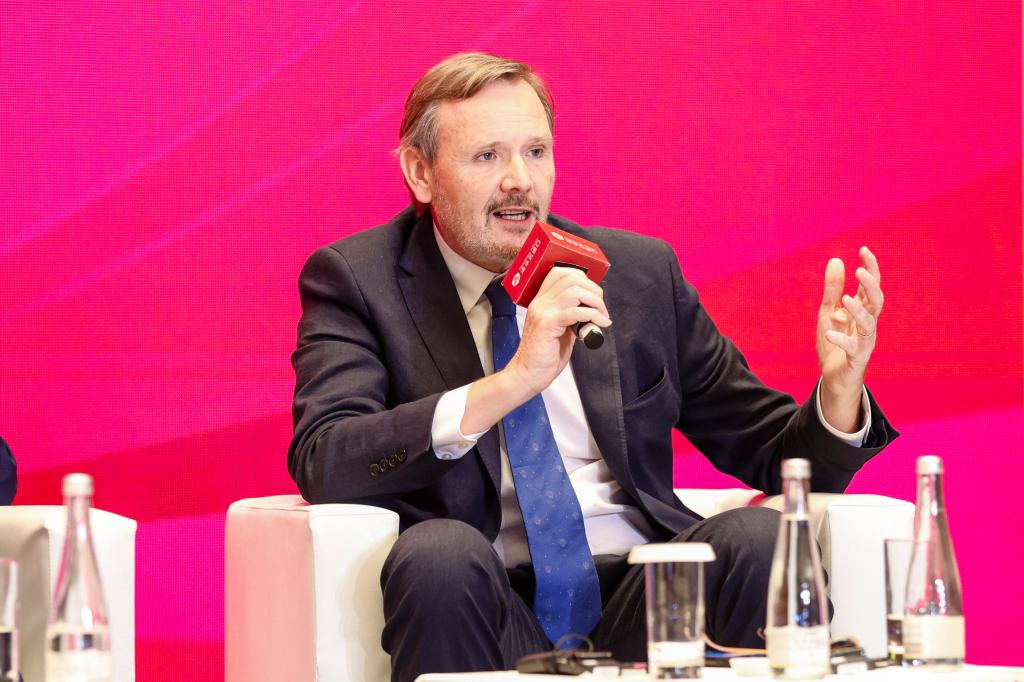
Duncan Bonfield
Duncan Bonfield stated that International Forum of Sovereign Wealth Funds, as patient capital, invest in long-term projects globally. Twenty years ago, due to the US government's concerns about foreign investment in its strategic assets, the International Monetary Fund mediated the establishment of the Santiago Principles by International Forum of Sovereign Wealth Funds to standardize investment practices.
During the financial crisis, these funds provided long-term, patient capital to crucial financial institutions, serving as a successful example of financial and investment globalization. The board members of these funds come from various countries, which, although not traditional investment powerhouses, have demonstrated excellence in sovereign investment.
International Forum of Sovereign Wealth Funds focus on long-term future economic trends, such as demographic shifts and technological advancements, rather than short-term market fluctuations or tariff disputes. Despite the trend towards de-globalization, globalization will not rapidly reverse; International Forum of Sovereign Wealth Funds are a vital component of globalization, emphasizing long-term trends.
Duncan Bonfield believes that, despite facing tariff disputes, the power of the global capital market cannot be overlooked, and long-term trends should not be ignored due to short-term difficulties.
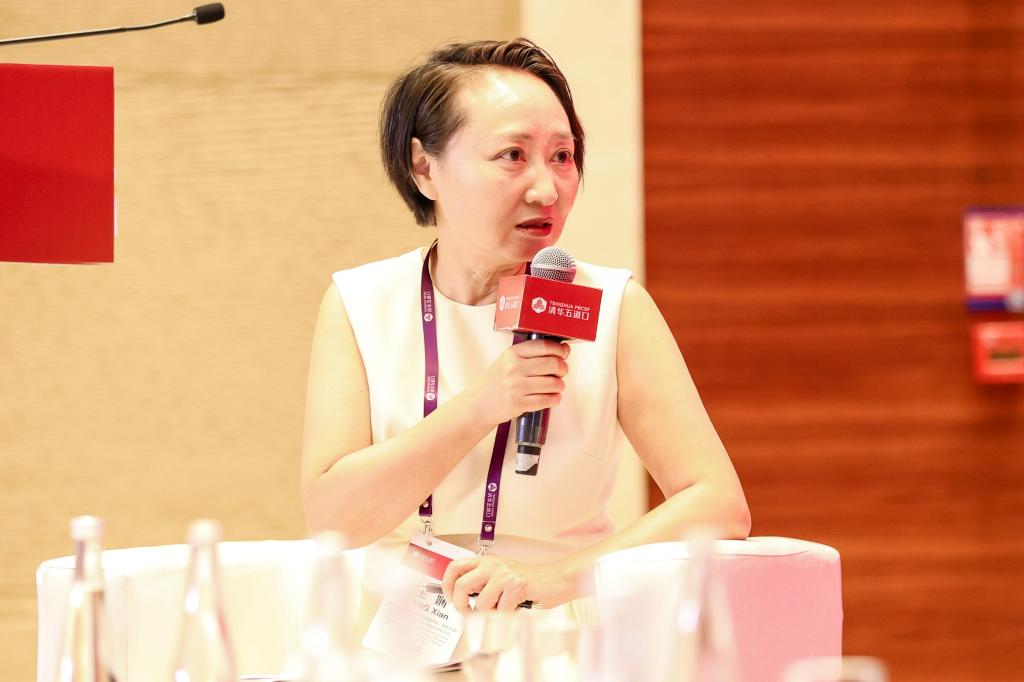
WANG Xian
The roundtable discussion, following the speeches, was lively and extraordinary, WANG Xian raised profound and forward-looking questions on "the profound impact of the wave of anti-globalization and tariff disputes on the capital market", "how these international economic dynamics affect and reshape the pattern of Hong Kong market and A-share market". The guests analyzed the issues from different perspectives, including deep reflection on the current difficulties and unique insights into future trends.
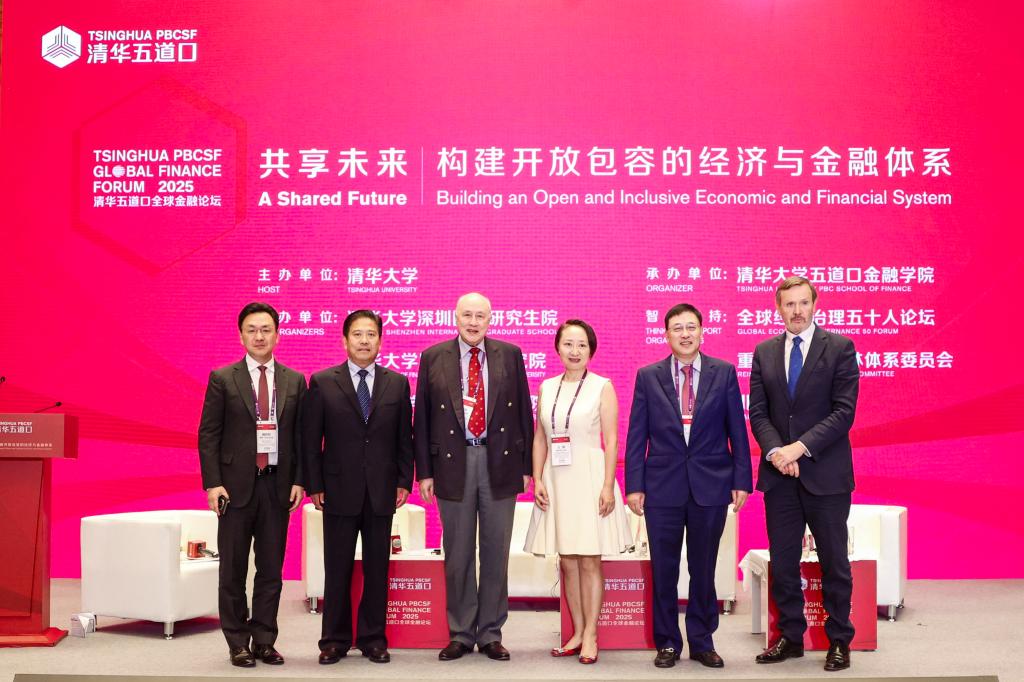
Group photo of guests at Theme Forum X